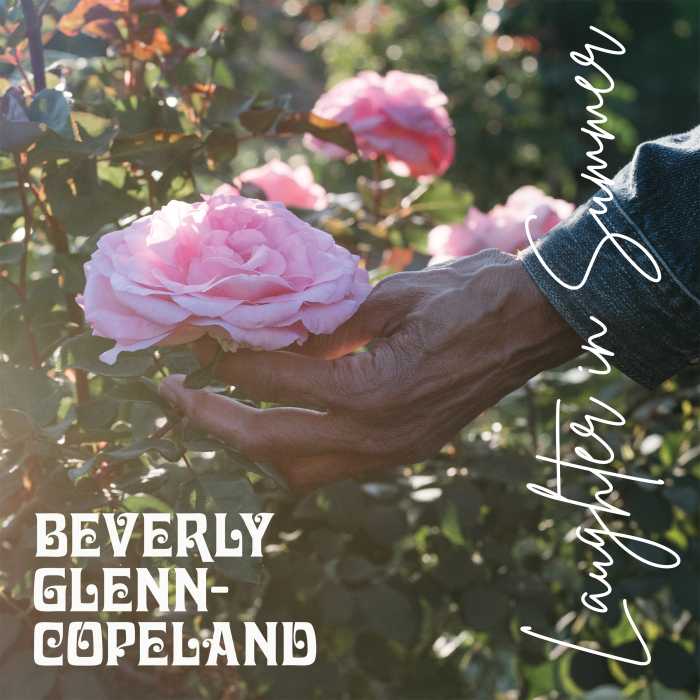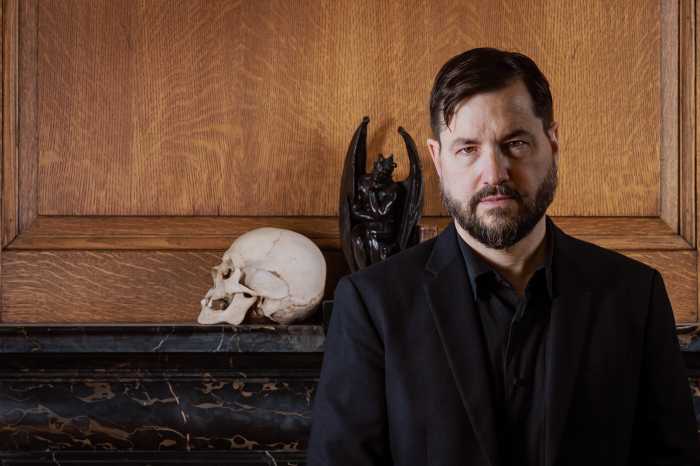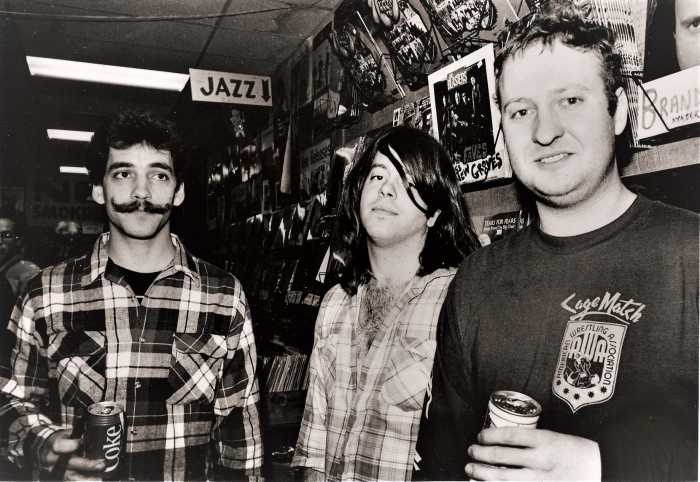Out lesbian singer/ songwriter/ guitarist Courtney Barnett has released her second solo album, “Tell Me How You Really Feel.” | POONEH GHANA/ MOMANDPOPMUSIC.COM
If one has paid attention to the past year’s worth of rock music, the resurgence of overtly feminist sounds, usually drawing on ‘90s female artists, has been unmistakable. Artists like U.S. Girls, Soccer Mommy, and Camp Cope have picked up where the riot grrrl movement left off, although they’ve used less aggressive sounds. It makes sense that The Breeders released their first album in a decade in 2018 and that a Liz Phair box set came out earlier this month.
Out lesbian singer/ songwriter/ guitarist Courtney Barnett’s second solo album, “Tell Me How You Really Feel,” fits this moment to a large extent. Its opening lines are “You know what they say/ No one’s born to hate/ We learned it somewhere along the way.” The first single, “Nameless, Faceless,” takes on Internet trolls in its verses but directly confronts physical male violence in its chorus. Barnett quotes Margaret Atwood’s statement that “Men are afraid women will laugh at them. Women are afraid men will kill them,” and adds her own fears about walking alone at night. The song’s structure goes from fairly laid-back verses to a revved-up chorus.
Up to this point, Barnett has released a compilation of two EPs, “The Double EP: A Sea of Split Peas” and a collaborative album with Philadelphia singer/ songwriter Kurt Vile, “Lotta Sea Lice,” in addition to her two solo albums. She burst onto the rock scene from Australia with a sound that updated the jangly rock of early R.E.M. with a laid-back feel. She was a perfect duet partner for Vile, whose own music suggests ‘70s Bruce Springsteen and Tom Petty through a stoned haze (although the singer says he doesn’t take drugs). “Lotta Sea Lice” had a warmth that seemed to reflect real friendship, as the two singers both played guitar and sang a few lines each, trading vocals back and forth.
Energy-fueled second solo album is her best work to date
“Tell Me How You Really Feel” is the most energetic and angry music Barnett has released. On “Charity,” Barnett’s guitar playing is as agitated as lyrics like “So subservient, I’ll make me sick.” It gets louder and more distorted as almost every song on “Tell Me How You Really Feel” does as it progresses. As reflected in her song and album titles, there used to be a goofiness to her work, which has drastically diminished. Instead, this album brings us songs like “I’m Not Your Mother, I’m Not Your Bitch,” “Help Your Self,” and “Crippling Self-Doubt and a General Lack of Confidence.”
Barnett being lesbian doesn’t free her from the fears about violence against women expressed on “Nameless, Faceless,” but a lot of the songs on this album are directed at a gender-free “you,” who sounds like Barnett’s partner. “I’m Not Your Mother, I’m Not Your Bitch” gets angry at a person who seems to be her lover. “Charity” takes sarcastic aim at a hypocrite seeking help both from Eastern religion and Western medicine.
“Walking on Eggshells” describes a tense relationship where Barnett avoids expressing the feelings she vents elsewhere on the album and suffers for it. These songs are detailed enough that they’re likely directed at a real person. If there are implicit politics to most of “Tell Me How You Really Feel,” they lie in exposing the way people manipulate and try to control each other, and Barnett is sharp-tongued enough to fight back ably.
Barnett is a very careful songwriter and arranger, even if many of her songs follow a quiet-loud formula. She obviously put much thought into the guitar effects she uses — the album’s final song, “Sunday Roast,” begins with clean, wide-open tones that avoid the distortion she often relies on. The opening moments of the first song, “Hopefulessnesss,” also kick off with Barnett playing fairly mellow guitar and synthesizer in the background; her drummer doesn’t begin playing for 90 seconds.
Barnett’s music benefits from subtle use of additional instrumentation, like piano on “Walking On Eggshells” and other keyboards throughout. The album is obviously structured with considered intention. “Sunday Roast” ends “Tell Me How You Really Feel” on a peaceful note, after it goes through a cycle of turbulent emotions and anger. This is Barnett’s best album, finally arriving at a sound that balances aggression and pop hooks.
COURTNEY BARNETT | “Tell Me How You Really Feel” | Mom + Pop Records | momandpopmusic.com





































